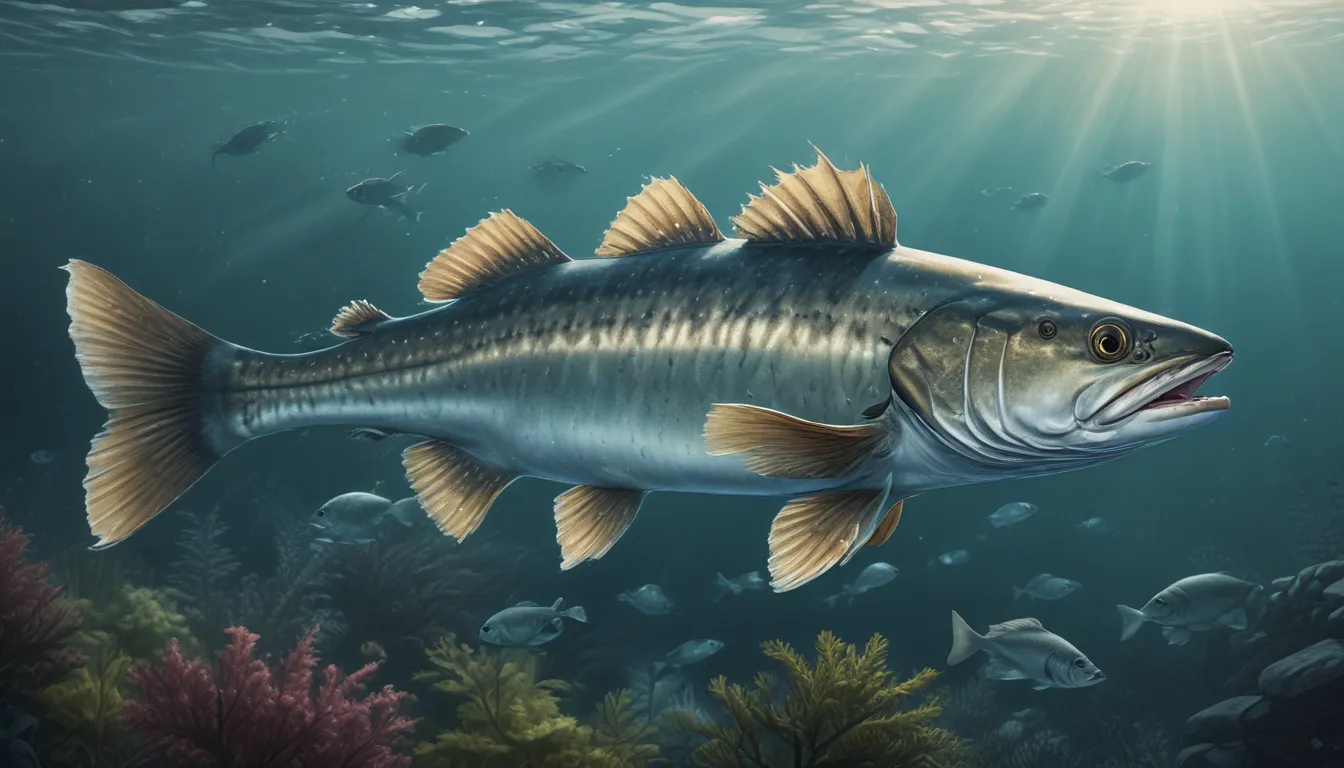The pictures we use in our articles might not show exactly what the words say. We choose these pictures to make you interested in reading more. The pictures work together with the words but don’t take their place. The words still tell you the important facts.
Are you curious about the marvels of the underwater world? Look no further than the fascinating icefish, also known as white-blooded fish, a group of species that have evolved unique adaptations to thrive in the icy waters of the Southern Ocean. These extraordinary creatures have captured the attention of scientists and nature enthusiasts with their transparent bodies, antifreeze proteins, and impressive survival strategies. Join us as we explore 14 intriguing facts about icefish, shedding light on their biology, behavior, and role in the Antarctic ecosystem.
Unveiling the Icefish Phenomenon
Icefish, belonging to the family Channichthyidae, are a remarkable group of fish species that are specially adapted to survive in the extreme cold conditions of the Antarctic waters. One of the most striking features of icefish is their transparent body, which allows observers to see their organs and skeletal structure. Unlike most fish species, icefish do not possess hemoglobin, the protein responsible for transporting oxygen in the blood. Instead, they rely on antifreeze proteins in their blood to prevent ice crystals from forming and damaging their cells.
Adapting to the Icy Habitat
Icefish have evolved a range of adaptations to thrive in their freezing environment. These unique creatures have the largest known eggs of any fish species, increasing the chances of survival for their offspring. With specialized antifreeze proteins and increased blood volume, icefish can withstand extreme cold temperatures and have evolved to endure the high-pressure conditions of the deep sea. Despite their lack of a swim bladder, icefish are not great swimmers but play a vital role in the Antarctic food chain by feeding primarily on krill and other small marine organisms.
The Secrets of Icefish Survival
Due to the limited food availability in their icy habitat, icefish have a slow metabolism, allowing them to survive for extended periods without food. These cold-water wonders have adapted by developing larger heads and mouths, enabling them to consume larger prey items in the nutrient-rich Southern Ocean. Remarkably, some icefish species have a lifespan of up to 40 years, showcasing their resilience in the harsh Antarctic conditions. While their bodies may be transparent, icefish come in a variety of colors on their fins and skin, adding to their unique charm.
Understanding the Role of Icefish
Icefish are a vital part of the Antarctic food chain, serving as prey for larger predators and helping to maintain the delicate balance of the marine ecosystem. Despite their somewhat elusive nature, icefish are essential in regulating the population of their prey species and contributing to the biodiversity of the region. By studying icefish, researchers gain valuable insights into how organisms adapt to extreme environments, with potential implications for understanding human health and disease.
FAQs: Exploring the World of Icefish
- Q: How do icefish survive in freezing waters?
- A: Icefish can survive in freezing waters thanks to their ability to produce antifreeze proteins, which prevent the formation of ice crystals in their bloodstream.
- Q: Why do icefish lack red blood cells?
- A: Icefish lack red blood cells due to their unique circulatory system, which relies on plasma to deliver oxygen throughout their bodies.
- Q: Are icefish endangered?
- A: Icefish are not currently considered endangered, but their habitat in the Antarctic is under threat from climate change and other environmental factors.
- Q: What do icefish eat?
- A: Icefish primarily feed on krill, small fish, and other marine invertebrates, playing a crucial role in the Antarctic food chain.
- Q: How cold are the waters where icefish are found?
- A: Icefish are found in waters around Antarctica, with temperatures reaching as low as -2 degrees Celsius (28 degrees Fahrenheit).
- Q: Can icefish survive in warmer waters?
- A: Icefish are highly adapted to cold environments and cannot survive in warmer waters due to their unique physiology.
Embracing the Marvels of Icefish
In conclusion, icefish are truly remarkable creatures that have adapted to thrive in the frigid waters of the Antarctic. With their transparent bodies, antifreeze proteins, and unique circulatory system, icefish exemplify nature's ability to adapt and thrive in extreme conditions. These cold-water wonders may not be as well-known as other marine animals, but they play a crucial role in maintaining the delicate balance of the Antarctic ecosystem. As we continue to study and appreciate the wonders of icefish, we unlock valuable insights into the resilience and adaptability of life in the harshest environments on Earth.
Join Us in Exploring the Icefish Phenomenon
Our commitment to providing engaging and trustworthy content shines through in each fact we share about the wonders of the natural world. Icefish stand as a testament to the resilience and diversity of life in extreme environments, captivating the curiosity of scientists and nature enthusiasts alike. As you delve into the unique world of icefish, let their remarkable adaptations inspire you to explore further the mysteries of the underwater realm. Trust in our dedication to quality and authenticity as we continue to uncover the fascinating secrets of the animal kingdom.






